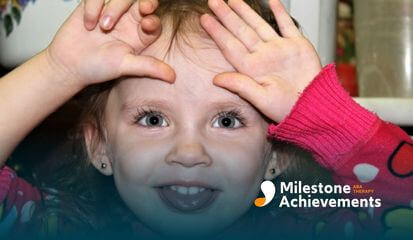
Can You Be Smart and Have Autism
Exploring the Rich Spectrum: Intelligence and Autism
Introduction
Autism Spectrum Disorder (ASD) presents a unique array of challenges and strengths in each individual it touches. With varying levels of intelligence reflected through diverse cognitive profiles, it poses intriguing questions about the relationship between autism and intelligence. This exploration seeks to understand how intelligence and autism can coexist and how individuals on the spectrum manifest their myriad of talents and abilities.
Understanding Autism's Cognitive Spectrum

What is the relationship between autism and intelligence?
The relationship between autism and intelligence is intricate and varies widely among individuals. Autism spectrum disorder (ASD) is characterized by challenges in social interaction, communication, and behavior, with individuals demonstrating a broad range of cognitive abilities.
Approximately 40% of individuals with autism may have intellectual disabilities, while many others score at average or above-average levels. This diversifies the spectrum of intelligence in the autism community. Notably, some autistic individuals—often referred to as savants—exhibit extraordinary skills in specific domains, such as music, art, and mathematics.
Research has established a positive genetic correlation between autism and higher cognitive abilities, indicating a potential link between certain genetic factors, autism, and intelligence. Autistic individuals frequently excel in analytical tasks, performing particularly well on tests like Raven’s Standard Progressive Matrices. These findings highlight their solid critical thinking and problem-solving skills.
Broad spectrum of strengths and challenges
Autism encompasses a wide range of abilities and challenges; many individuals display exceptional strengths such as attention to detail, pattern recognition, and memory skills. These cognitive profiles can lead to significant achievements in fields such as science, technology, engineering, and the arts.
However, some individuals may face challenges with executive functioning and theory of mind, which affects their planning and social interactions. Despite facing such difficulties, the diverse array of strengths in autistic individuals showcases their remarkable capabilities across various domains.
Unique cognitive profiles of individuals with autism
The cognitive profiles of individuals with autism often include unique traits that differ from neurotypical individuals. Traits like heightened sensory awareness, enhanced visual-spatial skills, and increased synaptic functions are commonly associated with higher intelligence. Thus, while traditional IQ tests might not fully capture their abilities, autistic individuals can exhibit unique intelligence forms and cognitive strengths that are often overlooked.
Giftedness and Autism: The 2e Phenomenon

Can a person be both gifted and autistic?
Yes, a person can indeed be both gifted and autistic, commonly referred to as being twice exceptional or 2e. The autism spectrum encompasses a wide range of cognitive abilities, leading many individuals to possess above-average intelligence. Research shows that autistic children are 1.5 times more likely to have an IQ above 120 compared to their non-autistic peers.
Challenges and strengths of being both gifted and autistic
While gifted autistic individuals may excel in areas such as mathematics, music, or science, they also encounter unique challenges. These challenges can include difficulties with executive functioning, social interactions, and flexible thinking. Because of their heightened abilities, they may face social isolation or find traditional educational settings unstimulating. On the other hand, their specific talents, such as exceptional pattern recognition or memory skills, can lead to significant contributions in their fields of interest.
Impact of early diagnosis
Early diagnosis of autism can provide gifted individuals with access to tailored support, enabling them to harness their strengths effectively. Recognizing both their gifts and challenges helps create an environment conducive to their growth. Advocating for appropriate resources can ensure that twice-exceptional individuals navigate their educational paths successfully, allowing them to excel while managing their unique needs.
Misconceptions About IQ and Autism

IQ variability among autistic individuals
The intelligence levels among individuals on the autism spectrum can vary significantly. Research indicates that around 40% of autistic individuals have an intellectual disability, while a notable portion displays average or above-average intelligence. For many, this leads to strengths in areas like mathematics, memory, and visual arts, resulting in a diverse array of cognitive capabilities.
Stereotypes and media portrayal
Common stereotypes typically portrayed in the media suggest that all autistic individuals either possess extraordinary intelligence—mirroring the concept of savant syndrome—or that they suffer from intellectual disabilities. These portrayals fail to reflect the true diversity within the autistic community. In reality, higher-than-average intelligence is present in many autistic individuals, dispelling the notion that autism equates to a singular intellectual experience.
Complexity of comparing IQs in autistic and non-autistic people
When comparing IQs between autistic and non-autistic individuals, complexity arises. It's crucial to recognize that traditional IQ tests may not accurately assess the capabilities of autistic individuals, as these assessments often overlook unique strengths and explore areas where they may be less proficient. This nuance calls for a more thorough understanding of intelligence beyond standard metrics, emphasizing the relevance of the theory of multiple intelligences to capture the abilities and challenges autistic individuals exhibit.
| Topic | Key Insights | % of Autistic Individuals |
|---|---|---|
| Intellectual Disability | Possess significant challenges | ~40% |
| Average/Above Average IQ | Numerous individuals excel in specific domains like STEM | ~60% (including gifted individuals) |
| Media Impact | Misleading portrayals of intelligence leading to stereotypes | N/A |
Savant Syndrome: The Myth and Reality

Clarification of Savant Syndrome
Savant syndrome is a condition often attributed to individuals who have extraordinary abilities in specific areas, such as music, art, or mathematics. This phenomenon can occur alongside various developmental conditions, prominently autism spectrum disorder (ASD). While the concept of a savant evokes images of remarkable talent, it's essential to note that savant abilities are rare and do not generalize to all individuals with autism.
Relation to Autism Spectrum Disorder
The connection between savant syndrome and autism is noteworthy, as many savant individuals are found on the autism spectrum. However, a significant majority of people with autism do not exhibit savant skills. Research indicates that while some individuals might demonstrate exceptional capabilities, the presence of savant syndrome should not be seen as an inherent trait of autism. Instead, the strengths of autistic individuals vary widely, offering unique skills in numerous fields beyond traditional assessments.
Frequency and Misconceptions
Misconceptions surrounding savant syndrome often stem from media portrayals, such as those featured in films, which emphasize exaggerated abilities. In reality, only a small percentage—estimated at around 10%—of individuals with autism are considered savants. Many autistic individuals may excel in other areas, employing unique problem-solving capabilities and heightened attention to detail, which illustrate the spectrum of abilities present without necessarily being classified as savants. Recognizing this diversity ensures a more balanced understanding of autism and the talents of those within the spectrum.
Intelligence Testing: Benefits and Limitations
Traditional vs. Alternative Intelligence Tests
Intelligence assessments for autistic individuals often rely on traditional IQ tests. These tests, such as the WISC-III, can yield misleading results, as they may not effectively measure the diverse skills present in autistic individuals. These individuals might display exceptional abilities in specific areas like music or mathematics, which standard tests do not fully assess. Furthermore, some studies show that, under these traditional criteria, autistic individuals can perform worse than neurotypical individuals with similar IQ scores.
Misrepresentations of Capabilities
The misunderstanding of autistic intelligence is amplified by media portrayals, which often focus on stereotypes of geniuses or individuals with intellectual disabilities. In reality, many autistic individuals possess average or above-average intelligence, and approximately 60% do not have intellectual disabilities. This oversimplification can obscure the true capabilities of a large segment of the autistic population, ignoring their nuanced skills and varying cognitive profiles.
Importance of Tailored Assessments
To better understand an autistic individual’s intelligence and capabilities, tailored assessments are essential. These assessments should consider various cognitive domains, including visual-spatial tasks, memory, and creative problem-solving. By employing a more inclusive approach, evaluators can gain a comprehensive understanding of an individual's strengths, enabling better support and opportunities for growth.
Strengths in Diversity: Uncovering Hidden Talents
Unique Cognitive Abilities in Autism
Autism Spectrum Disorder (ASD) is not just characterized by challenges; it brings a multitude of unique cognitive abilities. Individuals with autism often excel in areas typically overlooked by traditional assessments. These can include exceptional skills in memory, pattern recognition, and enhanced attention to detail. Such distinctive traits allow them to thrive in various environments, often leading to high achievements in their chosen fields.
Spotlighting Strengths in STEM Fields
Many individuals with autism find their niche in science, technology, engineering, and mathematics (STEM). The logical reasoning and ability to focus intensely on specific subjects help these individuals excel. Data suggests that autistic traits are more prevalent among professionals in STEM, indicating that the cognitive strengths associated with autism can lead to significant contributions in these domains. Success stories, like those of Temple Grandin and Dr. Stephen Shore, powerfully illustrate how autism can correlate with remarkable achievements in these areas.
Pattern Recognition and Attention to Detail
One of the most prominent strengths in autistic individuals is their ability to discern patterns and maintain an extraordinary attention to detail. These skills are invaluable in problem-solving scenarios and creative pursuits. These strengths often manifest in artistic fields or in technical roles, such as software development or engineering, where attention to detail can lead to groundbreaking innovations.
| Ability | Description | Application in Life |
|---|---|---|
| Pattern Recognition | Ability to identify regularities and predict outcomes | Data analysis, coding |
| Attention to Detail | Notice subtle nuances in work or projects | Quality assurance |
| Logical Reasoning | Solving problems using structured approaches | Engineering design |
Recognizing and nurturing these abilities enriches both the lives of individuals with autism and the society as a whole.
Media Influences: Perceptions and Reality

Hollywood vs. Reality Portrayals of Autism
Media portrayals often skew public understanding of autism. Films like Rain Man have popularized the stereotype of the 'autistic genius,' suggesting all individuals on the spectrum possess extraordinary intelligence or savant skills. However, this is a misleading characterization. In reality, autism is a spectrum disorder with a wide variety of cognitive abilities. Many autistic individuals are average or below average in intelligence, debunking the myth that all are either geniuses or severely challenged.
Impact on Public Perception
The dramatic representations of autistic characters can create unrealistic expectations about the abilities of actual individuals on the spectrum. This often leads to misconceptions that all autistic people lack empathy or have rigid interests. Such views neglect the diverse strengths and challenges faced by those with autism, perpetuating a narrow understanding of the condition beyond its complex nature.
Historical Stereotypes
Historically, autism has been linked predominantly to intellectual disabilities, overshadowing the capabilities of many individuals on the autism spectrum. Figures from history known for their genius—like Albert Einstein and Wolfgang Mozart—are often speculated to have had autistic traits, further weaving the narrative of the 'autistic savant' into public consciousness. This ties back to the broader societal misconceptions that can hinder the rightful recognition of autistic individuals' talents and abilities.
Science Behind Autism and Intelligence
Research on genetic links
Research indicates a significant genetic correlation between autism and measures of mental ability. Studies from Ohio State University suggest that families with autistic individuals often also display higher-than-average IQs, indicating a potential genetic relationship between autism traits and exceptional intelligence. A Cambridge University study further supports this connection, showing that autistic traits may be more prevalent among individuals excelling in STEM fields.
Correlation with high mental ability
While Autism Spectrum Disorder (ASD) encompasses a wide array of cognitive abilities, many studies highlight a tendency for individuals on the spectrum to manifest strengths in areas affected by intelligence. Approximately 40% of autistic individuals experience an intellectual disability; however, recent findings suggest that over half demonstrate average or above-average IQ scores. These variations challenge the stereotype that autism is intrinsically linked with cognitive impairment.
Structural brain differences
Structural differences in the brains of autistic individuals have been associated with a duality of cognitive outcomes. Research shows these individuals often possess enhanced sensory and visual-spatial abilities alongside large brain sizes, all of which correlate with higher intelligence. This complexity raises important discussions about how traditional intelligence assessments may not adequately represent the diverse cognitive profiles common in those with ASD.
Supporting Autistic Individuals: Strategies for Success
Intervention Methods
Interventions can significantly improve the skills and quality of life for autistic individuals. Approaches like Applied Behavior Analysis (ABA) focus on reinforcing desirable behaviors while decreasing challenging ones. Other methods include Cognitive Behavioral Therapy (CBT) to assist in managing anxiety and improving emotional regulation. Speech therapy is also vital in enhancing communication skills, enabling better social interactions.
Educational Strategies
An inclusive educational environment can foster growth and development. Individualized Education Programs (IEPs) are essential for tailoring the curriculum to suit each child's needs. Teachers trained in autism-specific strategies can help in implementing effective learning techniques that cater to various intelligence levels among students. Visual aids and hands-on activities enhance understanding and engagement, while specific accommodations can support students in a typical classroom setting.
Nurturing Environments for Skill Development
Creating supportive environments at home and in the community can nurture an autistic individual's abilities. Structured routines provide clarity and security, reducing anxiety. Encouraging exploration in areas of interest helps build confidence. Collaboration between families, teachers, and therapists ensures a consistent approach that aligns with the individual's unique strengths, enabling skill development and fostering independence.
| Strategy | Description | Benefits |
|---|---|---|
| ABA | Behavior modification technique focusing on positive reinforcement | Improves desired behaviors |
| IEPs | Customized learning plans tailored to individual needs | Ensures personal learning goals |
| Speech Therapy | Enhances communication abilities | Facilitates better social interactions |
| Emotional Support | Provides coping strategies for anxiety and emotional regulation | Promotes mental well-being |
| Structured Routines | Establishes predictable schedules | Reduces anxiety and increases confidence |
By implementing these strategies, caregivers and educators can create environments where autistic individuals thrive and contribute their unique talents.
Personal Narratives: Lived Experiences
Stories of Autistic Individuals
Personal narratives from autistic individuals shine a light on the diverse experiences and challenges they face. Stories vary widely, from someone whose extraordinary memory for numbers led them to a successful career in engineering, to an artist who channels their unique sensory experiences into vivid, expressive paintings. These accounts emphasize that autism is not a monolithic experience; individuals showcase strengths and challenges that can differ drastically from one person to another.
Expert Insights and Perspectives
Experts in the field often note that lived experiences of individuals on the autism spectrum can enhance understanding of cognitive abilities. Dr. Stephen Shore, an advocate with autism, points out that while some individuals may face difficulties in social interactions, they can simultaneously thrive in areas like analytical thinking or artistic expression. Insightful studies suggest that many autistic individuals possess exceptional problem-solving skills, which can lead to success in STEM fields, despite the struggles they may encounter in traditional settings.
Challenges and Triumphs
Stories of triumph often highlight how autistic individuals navigate their cognitive differences, overcoming societal misconceptions. Some may face obstacles like anxiety and difficulty in social situations, but they frequently illustrate resilience and creativity. By leveraging their unique strengths and receiving appropriate support, many have turned challenges into opportunities, paving their way to meaningful contributions in various domains. These experiences reiterate the notion that intelligence in autism cannot be framed within conventional boundaries, showcasing instead a spectrum of abilities worthy of recognition.
The Evolution of Understanding Autism and Intelligence
Historical Perspectives and Changes
Historically, autism was often associated with intellectual disabilities, leading to misconceptions that all individuals on the spectrum were limited in cognitive abilities. The term ‘autistic genius’ popularized by films like Rain Man further skewed public perception, implying that extraordinary talents were inherent. However, research has revealed a broader spectrum of capabilities, challenging stereotypes of uniformity in intelligence among autistic individuals.
Advancements in Research
Recently, extensive studies have demonstrated that approximately 40% of autistic individuals have intellectual disabilities, while the rest demonstrate average or above-average intelligence. Research from institutions like Yale and Ohio State University has uncovered potential genetic links between autism and heightened cognitive abilities, suggesting that many autistic individuals can excel in fields such as STEM, art, and music.
Shifting Societal Attitudes
As the understanding of autism and intelligence evolves, societal attitudes have begun to shift. No longer viewed solely through the lens of disability, many now recognize the exceptional skills and contributions of autistic individuals. Prominent figures such as Temple Grandin and Stephen Shore serve as inspirations, showcasing that intelligence in autism comes in varied forms and can lead to remarkable achievements in society.
Conclusion
As we delve deeper into the study of autism and its relationship with intelligence, it becomes clear that the spectrum is vast and multifaceted. The notion that autism equates to genius or ignorance is not only misleading but also dismisses the individuality of each person on the spectrum. It is crucial for society to advance the understanding of autism by celebrating the unique strengths and contributions of autistic individuals while providing the support needed to navigate their challenges. Increased awareness and acceptance can pave the way for a more inclusive world where every autistic person's potential is acknowledged and nurtured.
References
- Can You be Smart and Have Autism?
- Are Autistic People Smart? Autism Geniuses
- Are Autistic People Smart? Autism Geniuses - Cross River Therapy
- Autistic Genius: Is Autism Associated with Higher Intelligence?
- Autism & high intelligence
- Autism As a Disorder of High Intelligence - PMC - PubMed Central
- Does autism make you smarter?
- What Makes Children with Autism Exceptional Intelligent?


Partner with us on your child's journey
Milestone Achievements offers evidence-based ABA therapy to help children with autism reach their full potential. Together we’ll set meaningful goals and celebrate progress every step of the way.
Start ABA Services Today


